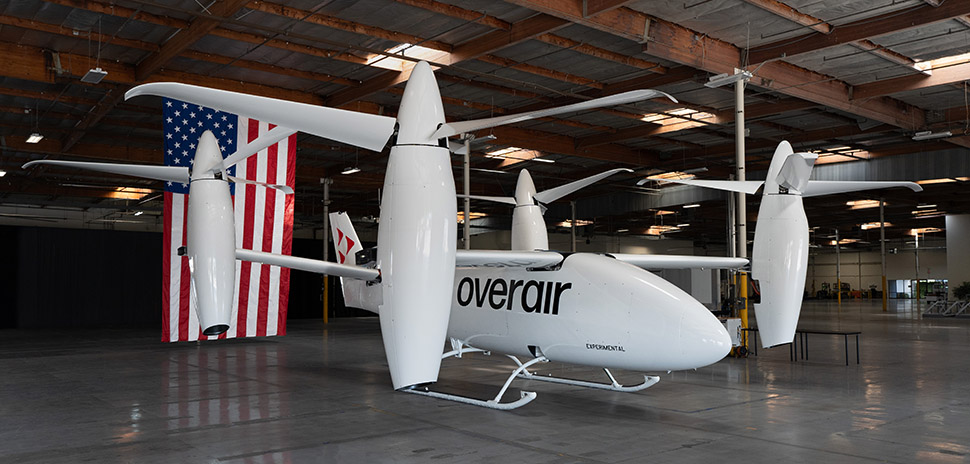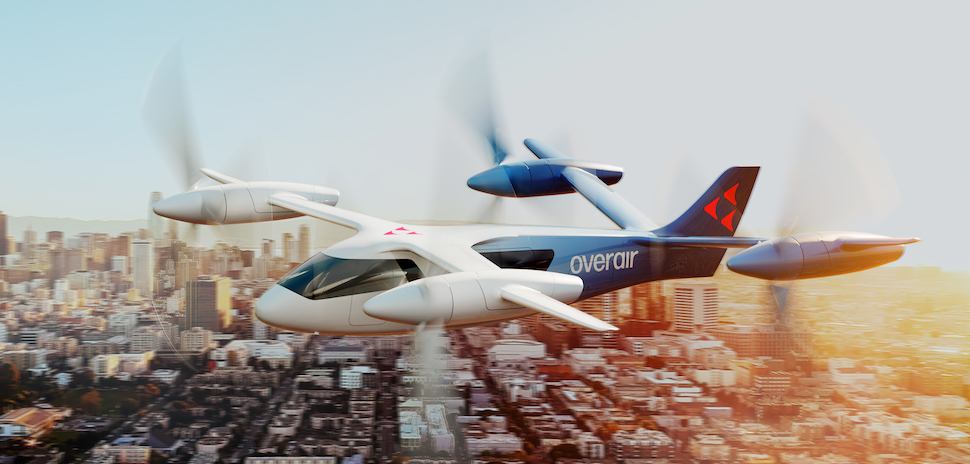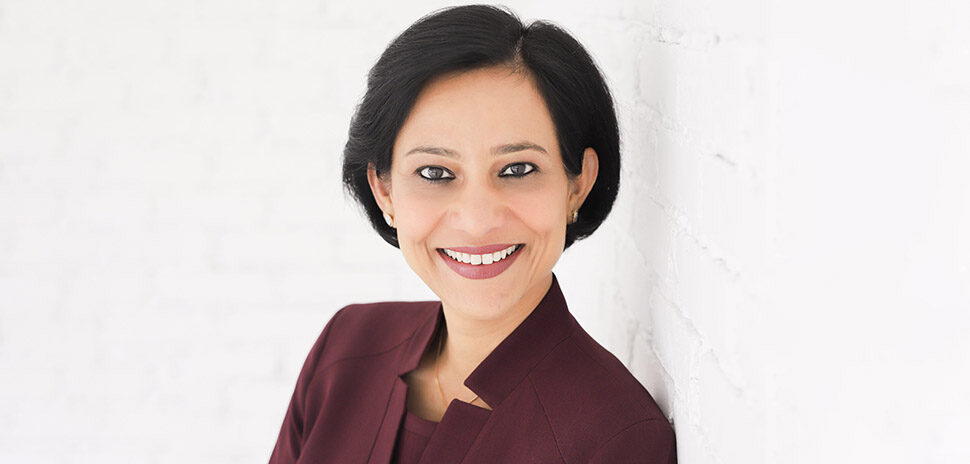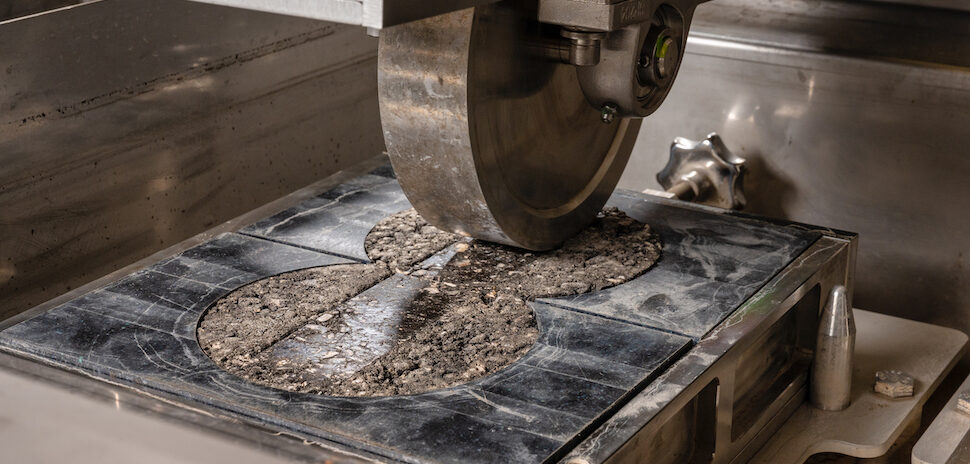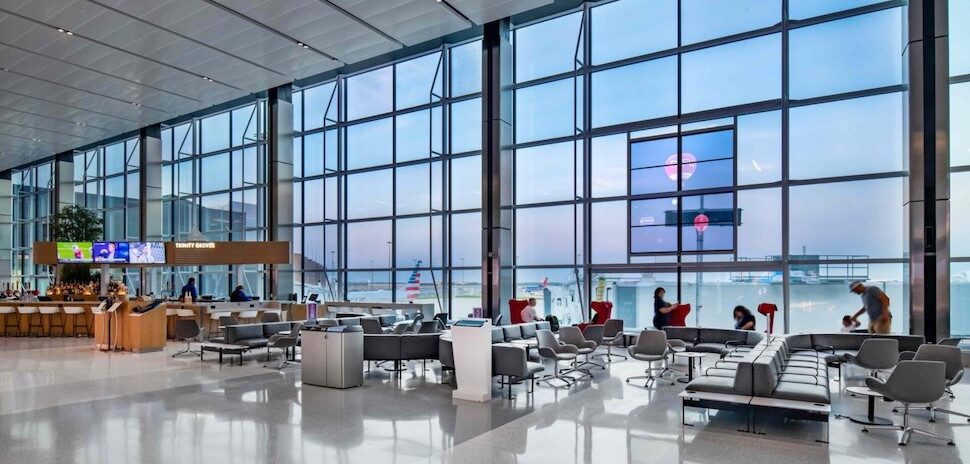Overair, which recently announced a partnership with the city of Arlington and DFW International Airport to develop and launch eVTOL operations, has completed assembly of the first full-scale prototype of its Butterfly eVTOL aircraft.
The company is an emerging global leader in advanced air mobility and developer of all-electric vertical takeoff and landing (eVTOL) aircraft.
“Assembling our first full-scale prototype vehicle marks the culmination of years of industry expertise, meticulous development planning, innovative engineering, and the hard work of the entire Overair team,” Overair CEO Ben Tigner said in a statement. “This seamless transition from propulsion testing to a full-scale prototype underscores our dedication to redefining the eVTOL landscape with safer, quieter, and more reliable aircraft.”
Overair said the announcement marks a pivotal milestone for the original equipment manufacturer, following the validation of its full-scale propulsion technology via a 2022 truck-based test.
The company said the achievement signals the start of Overair’s vehicle level testing phase at its Santa Ana, California headquarters, before moving the aircraft to its flight test facility in Victorville, California.
The company said that initial tests, scheduled to begin early next year, will focus on validating Butterfly’s propulsion systems, flight control mechanics, safety features, and operational efficiency. The testing will also assess the aircraft’s 55-decibel noise target and performance envelope across diverse flight and weather conditions, the company said.
Advantages of the Butterfly design
Overair was born out of Karem Aircraft leveraging decades of VTOL expertise to efficiently develop, manufacture, test, and refine its vehicle as it pursues certification and operation designed to match the FAA’s Advanced Air Mobility Implementation Plan.
The company said this vehicle will be the first-ever eVTOL aircraft to be built around Optimum Speed Tilt Rotor (OSTR) and Individual Blade Control (IBC) technologies.
Overair said that OSTR technology varies propeller revolutions per minute to increase efficiency across vertical, transition, and forward flight phases and can reduce power demand at hover by 60%.
The company said IBC reduces vibration and propeller loads, enhances safety, provides smoother ride quality, and lowers maintenance costs.
Together, Overair said these technologies deliver an efficient, quiet, and reliable propulsion system in almost any weather, temperature, or altitude. Additionally, with fewer moving parts than traditional tiltrotors and no single points of failure, Overair said it has a unique position in the market.
‘Poised to redefine air transportation’
“I’m thrilled to see this vehicle come to life,” Abe Karem, founder of Karem Aircraft and a pioneer of UAV drone technology, said in a statement. “Using these advanced technologies, Butterfly is bringing a completely novel approach to aviation and is poised to redefine air transportation.”
Overair said that Butterfly’s design, largely attributable to its advanced propulsion technologies, is unique in the eVTOL market. Featuring four oversized rotors—over twice the size of those used by other eVTOL OEMs—a spacious cabin, high payload and “the quietest, most efficient operation” in its class, Overair’s Butterfly is designed for passenger, medical, cargo, and military applications.
“Since day one, Overair has been committed to developing an aircraft that extends efficient air transportation to a broader audience; an aircraft that will be welcomed by local communities, passengers, and operators alike,” Valerie Manning, chief commercial officer at Overair, said in a statement. “Our prototype is where we begin real-world, full-scale validation of these fundamental design principles.”
Partners DFW and City of Arlington are key in AAM development
As the company attains critical aircraft development milestones with the completion and subsequent testing of its full-scale prototype, Overair is also focused on preparing for future operations.
Overair said it has attracted significant market interest from customers both in commercial and the military, and across several geographies leading to a deep understanding of the product-market fit, including the recent announcement of a SBIR award by the US Navy to further advance the IBC system.
Overair said that a foundation built on product, infrastructure, and market expertise is key to accelerating successful Advanced Air Mobility (AAM) adoption.
The company said it believes that with partners such as Dallas Fort Worth International Airport, the city of Arlington Texas, and Jeju Island, South Korea, it will play a key role in advancing the development of global advanced air mobility infrastructure and leading the deployment of eVTOL operations at scale.
![]()
Get on the list.
Dallas Innovates, every day.
Sign up to keep your eye on what’s new and next in Dallas-Fort Worth, every day.

